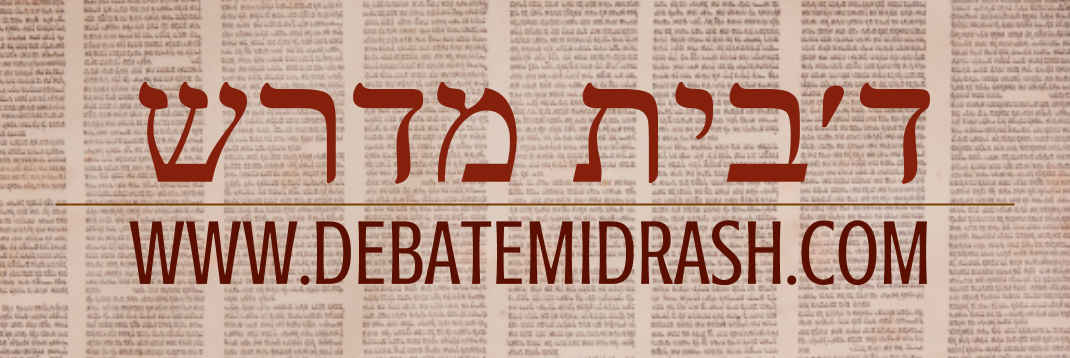Chapter 6
| 1. And the Eternal spoke to Moses, saying, | | א. וַיְדַבֵּר יְהֹוָה אֶל משֶׁה לֵּאמֹר: |
| 2. Command Aaron and his sons, saying, This is the law of the burnt offering: That is the burnt offering which burns on the altar all night until morning, and the fire of the altar shall burn with it. | | ב. צַו אֶת אַהֲרֹן וְאֶת בָּנָיו לֵאמֹר זֹאת תּוֹרַת הָעֹלָה הִוא הָעֹלָה עַל מוֹקְדָה עַל הַמִּזְבֵּחַ כָּל הַלַּיְלָה עַד הַבֹּקֶר וְאֵשׁ הַמִּזְבֵּחַ תּוּקַד בּוֹ: |
| 3. And the kohen shall don his linen tunic, and he shall don his linen trousers on his flesh. And he shall lift out the ashes into which the fire has consumed the burnt offering upon the altar, and put them down next to the altar. | | ג. וְלָבַשׁ הַכֹּהֵן מִדּוֹ בַד וּמִכְנְסֵי בַד יִלְבַּשׁ עַל בְּשָׂרוֹ וְהֵרִים אֶת הַדֶּשֶׁן אֲשֶׁר תֹּאכַל הָאֵשׁ אֶת הָעֹלָה עַל הַמִּזְבֵּחַ וְשָׂמוֹ אֵצֶל הַמִּזְבֵּחַ: |
| 4. He shall then take off his garments and put on other garments, and he shall take out the ashes to a clean place outside the camp. | | ד. וּפָשַׁט אֶת בְּגָדָיו וְלָבַשׁ בְּגָדִים אֲחֵרִים וְהוֹצִיא אֶת הַדֶּשֶׁן אֶל מִחוּץ לַמַּחֲנֶה אֶל מָקוֹם טָהוֹר: |
| 5. And the fire on the altar shall burn on it; it shall not go out. The kohen shall kindle wood upon it every morning, and upon it, he shall arrange the burnt offering and cause the fats of the peace offerings to [go up in] smoke upon it. | | ה. וְהָאֵשׁ עַל הַמִּזְבֵּחַ תּוּקַד בּוֹ לֹא תִכְבֶּה וּבִעֵר עָלֶיהָ הַכֹּהֵן עֵצִים בַּבֹּקֶר בַּבֹּקֶר וְעָרַךְ עָלֶיהָ הָעֹלָה וְהִקְטִיר עָלֶיהָ חֶלְבֵי הַשְּׁלָמִים: |
| 6. A continuous fire shall burn upon the altar; it shall not go out. | | ו. אֵשׁ תָּמִיד תּוּקַד עַל הַמִּזְבֵּחַ לֹא תִכְבֶּה: |
| 7. And this is the law of the meal offering: that Aaron's sons shall bring it before the Eternal, to the front of the altar. | | ז. וְזֹאת תּוֹרַת הַמִּנְחָה הַקְרֵב אֹתָהּ בְּנֵי אַהֲרֹן לִפְנֵי יְהֹוָה אֶל פְּנֵי הַמִּזְבֵּחַ: |
| 8. And he shall lift out of it in his fist, from the fine flour of the meal offering and from its oil and all the frankincense that is on the meal offering, and he shall cause its reminder to [go up in] smoke on the altar as a pleasing fragrance to the Eternal. | | ח. וְהֵרִים מִמֶּנּוּ בְּקֻמְצוֹ מִסֹּלֶת הַמִּנְחָה וּמִשַּׁמְנָהּ וְאֵת כָּל הַלְּבֹנָה אֲשֶׁר עַל הַמִּנְחָה וְהִקְטִיר הַמִּזְבֵּחַ רֵיחַ נִיחֹחַ אַזְכָּרָתָהּ לַיהֹוָה: |
| 9. And Aaron and his sons shall eat whatever is left over from it. It shall be eaten as unleavened bread in a holy place; they shall eat it in the courtyard of the Tent of Meeting. | | ט. וְהַנּוֹתֶרֶת מִמֶּנָּה יֹאכְלוּ אַהֲרֹן וּבָנָיו מַצּוֹת תֵּאָכֵל בְּמָקוֹם קָדֹשׁ בַּחֲצַר אֹהֶל מוֹעֵד יֹאכְלוּהָ: |
| 10. It shall not be baked leavened. [As] their portion, I have given it to them from My fire offerings. It is a holy of holies, like the sin offering and like the guilt offering. | | י. לֹא תֵאָפֶה חָמֵץ חֶלְקָם נָתַתִּי אֹתָהּ מֵאִשָּׁי קֹדֶשׁ קָדָשִׁים הִוא כַּחַטָּאת וְכָאָשָׁם: |
| 11. Any male among Aaron's sons may eat it. [This is] an eternal statute for your generations from the fire offerings of the Eternal. Anything that touches them shall become holy. | | יא. כָּל זָכָר בִּבְנֵי אַהֲרֹן יֹאכְלֶנָּה חָק עוֹלָם לְדֹרֹתֵיכֶם מֵאִשֵּׁי יְהֹוָה כֹּל אֲשֶׁר יִגַּע בָּהֶם יִקְדָּשׁ: |
Guide Questions
1. Rashi says that verse 1 uses the word צַו for a specific reason. What does it indicate? According to Rashi, why? Can you think of something where it is okay to be "close enough," and something else where things have to be exact? Why so in each case?
2.In Etz Hayyim (p. 613), what can "the fire on the altar is kept going on it" in verse 2 also mean? What are the things in your life for which you are always enthusiastic (the fire within you)? What things are harder? How do you motivate yourself (get yourself "fired up")?
3. Rashi comments on "he shall lift out the ashes" in verse 3. Where is the the priest/cohen supposed to put the used-up ashes? This is in contrast to the fire which is supposed to be "continuous" (verse 6). In your opinion, what parts of Judaism do you think can be changed or gotten rid of, like the ashes? Which parts of Judaism will always have meaning, like the fire?
4. In Etz Hayyim (p. 614 at the bottom), why does the kohen have to put on ordinary clothes to take out the ashes each morning? Can you think of an example where a leader "lost touch" with "ordinary" people? What is the problem if this happens?
5. In Etz Hayyim (p. 615 on verse 11 at the bottom, the Torah says "only the males" may officiate at the service. What does the commentary say the Conservative movement has done about officiating at religious events? Do you agree or disagree? Why or why not?
6. According to Plaut's Modern Commentary (p. 780), what three kinds of sacrifices are described in this chapter? They each symbolize a different reason why someone would offer a sacrifice, but today prayer has replaced sacrificed. In your opinion, what are the different reasons why people pray? Do you think prayer "works"?
7. In Text Messages, p. 120, what problem does Rabbi Jamie Korngold have with the first verse of this Torah portion? What is her response? Do you agree or disagree? Why? What do you think of the phrase "The Eternal spoke to Moses" now that you have read her short essay?
